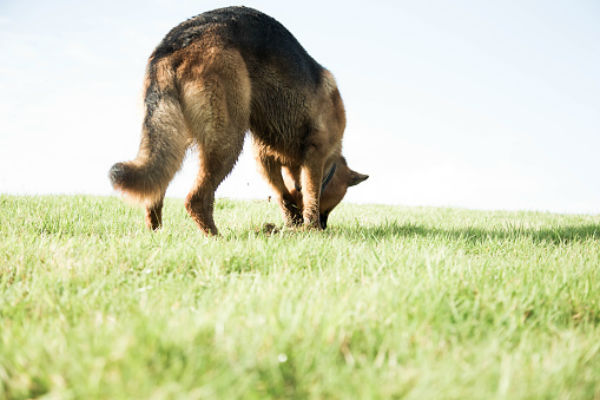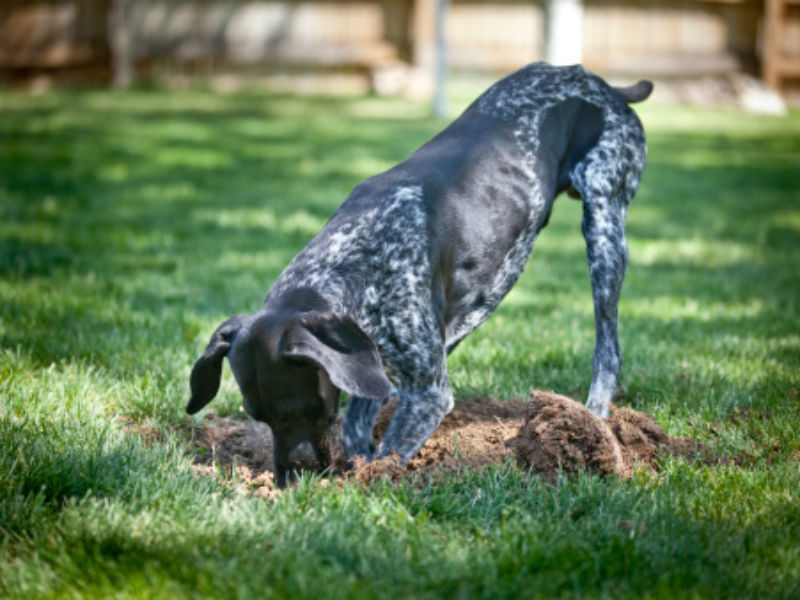One of the most frustrating behaviors dog owners experience is digging. Many a garden has been sacrificed to the paws of a digging dog, and it can become a nuisance if it’s not understood and managed. Understanding why dogs dig is an important tool in controlling the behavior, especially if the digging is only a symptom of a greater problem. So why do dogs dig? There are several reasons:
Genetics
Genetics play a key role in the temperament of our dogs, and the propensity to dig is no exception. Many hunting dogs, such as terriers and small hounds, were bred to dig out quarry from their dens. If you have gophers or other small animals in your yard, there’s a good chance that your dog will dig to catch them. In fact, some dogs just enjoy digging to look for prey, so you might have a yard that resembles Swiss cheese!
Stress Relief
Digging can be fun for dogs, making it a great way for them to relieve stress. This stress can be created in several ways, but most active diggers are either very bored or suffer separation anxiety. Dogs left on their own for too long, without ways to remain occupied, will often turn to digging. Dogs with separation anxiety need a way to channel their negative emotions into something productive and can become quite obsessive about digging. Digging provides mental and physical stimulation — something necessary for curbing feelings of boredom and anxiety.

Escape
Some dogs are dedicated escape artists. If they can’t go over or through, there’s a good chance they’re going to try and go under. For many dogs, this works quite well. Many people don’t have fences that go under the ground, so dogs can easily dig right under them, creating the perfect tunnel to crawl through. If your dog is an escape artist, you might want to consider why he or she is trying to get out of the yard. More often than not, it’s also due to boredom or anxiety.
Find out what to do if your dog gets away from you here.
Denning
Dogs naturally seek the shelter of dens. Although it’s not as noticeable in our domestic pets, wild canids still dig dens. Dens are cooler in hot weather, warmer in cold weather (this is why many of the northern breeds, such as Siberian Huskies, are known for digging), and a shelter they can feel secure in. You might notice your dog digging on his or her bed or in the crate; this is also an instinctual behavior related to digging dens outdoors. In short, denning is very natural for dogs and is a difficult behavior to break if your dog enjoys having a self-constructed home outdoors.

Although understanding why dogs dig can help manage the behavior, it is often very difficult to stop. Digging is a natural behavior, especially if you have a breed that was bred for digging while hunting or a denning dog. In these cases, the instinct and desire to dig is so great that it’s often unfair to ask the dog to stop doing it. Instead, never leaving them unsupervised, giving them alternative behaviors, or even providing a special place in the yard will help control the digging. If your dog is digging because of stress, you’ll want to address the cause of the stress before you start acting on the digging itself. Whatever the reason, digging can be managed and sometimes completely stopped, but it takes time, patience, and an understanding of dog behavior.


